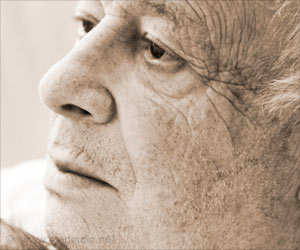Coding system of psychologist Paul Ekman remains a cornerstone in psychotherapy, translating facial expressions.

Machine Learning Facial Emotion Classifiers in Psychotherapy Research: A Proof-of-Concept Study
Go to source). “Ekman’s system is very widespread, and represents a standard in psychological emotion research,” says Dr. Martin Steppan, a psychologist at the Faculty of Psychology at the University of Basel.
‘Psychologists employ AI to decode emotional states from facial expressions, providing a faster alternative to labor-intensive manual analysis, using neural networks trained on 30,000 facial photos.
#psychotherapy, #facialexpressions, #emotions
’





However, the process of analyzing and interpreting recorded facial expressions as part of research projects or psychotherapy is extremely time-consuming, which is why psychiatry specialists often use less reliable, indirect methods such as skin conductance measurements, which can also be a measure of emotional arousal. “We wanted to find out whether AI systems can reliably determine the emotional states of patients in video recordings,” says Martin Steppan, who developed the study together with emeritus Professor Klaus Schmeck, Dr. Ronan Zimmermann and Dr. Lukas Fürer from the UPK. The researchers published their findings in the journal Psychopathology.
The researchers used freely available artificial neural networks that were trained in the detection of six basic emotions (happiness, surprise, anger, disgust, sadness, and fear) using over 30,000 facial photos.
This AI system then analyzed video data from therapy sessions with a total of 23 patients with borderline personality pathology at the Center for Scientific Computing at the University of Basel.
The high-performance computer had to process over 950 hours of video recordings for this study.
Advertisement
The AI system assessed the facial expressions as reliably as a human but was also able to detect even the most fleeting of emotions within the millisecond range, such as a brief smile or expression of disgust.
Visual Language of Emotions
The results were astonishing: statistical comparisons between the analysis of three trained therapists and the AI system showed a remarkable level of agreement.Advertisement
These types of microexpressions have the potential to be missed by therapists or may only be perceived subconsciously. The AI system is therefore able to measure fleeting emotions with an increased level of sensitivity compared to trained therapists.
The AI analysis also uncovered something rather unexpected. Patients who demonstrated emotional involvement and smiled at the start of a therapy session went on to cancel their psychotherapy less often than people who seemed emotionally uninvolved with their therapist.
This “social” smiling could therefore be a good predictor of therapy success in a person with symptoms of borderline personality pathology.
“We were really surprised to find that relatively simple AI systems can allocate facial expressions to their emotional states so reliably,” says Martin Steppan.
AI could therefore become an important tool in therapy and research. AI systems could be used in the analysis of existing video recordings from research studies to detect emotionally relevant moments in a conversation more easily and directly.
This ability could also help support the supervision of psychotherapists. “Nevertheless, therapeutic work is still primarily about human relationships, and remains a human domain,” says Steppan. “At least for the time being.”
Reference:
- Machine Learning Facial Emotion Classifiers in Psychotherapy Research: A Proof-of-Concept Study - (https://karger.com/psp/article/doi/10.1159/000534811/870243/Machine-Learning-Facial-Emotion-Classifiers-in)
Source-Eurekalert











